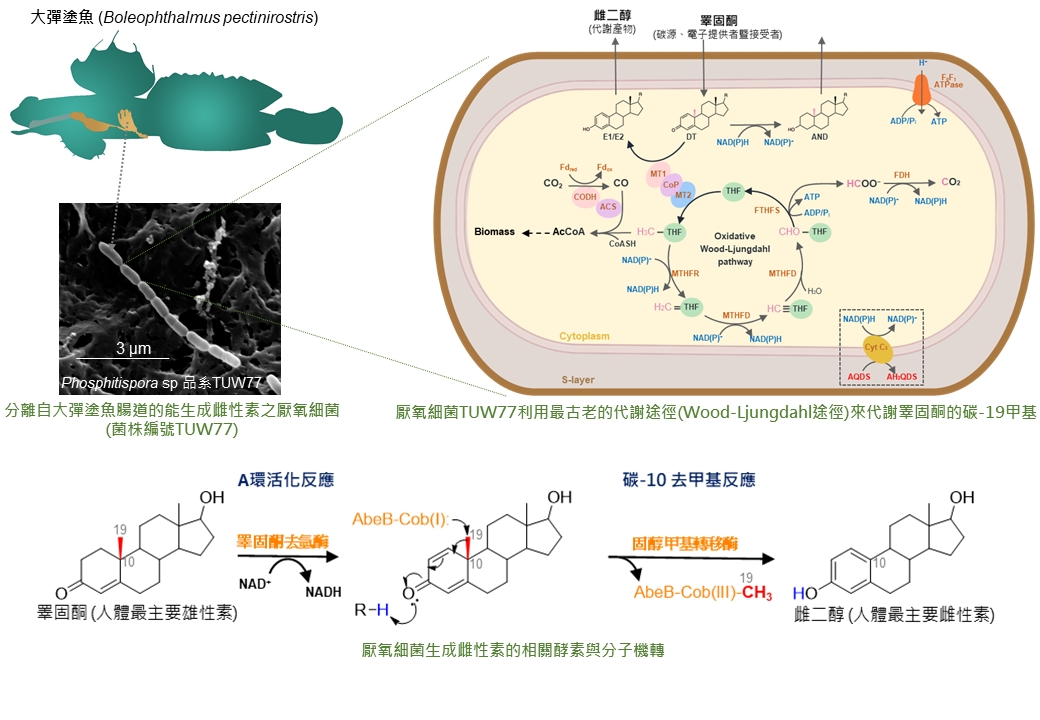Date: 2025-03-20
A research team led by Dr. Yin-Ru Chiang from the Biodiversity Research Center, Academia Sinica has isolated and characterized a novel anaerobic bacterium from the intestine of the giant mudskipper. This bacterium can convert testosterone (the primary male hormone in humans) into estrogen in an oxygen-free environment. This discovery challenges the traditional scientific understanding that estrogen production requires oxygen and aromatase (a monooxygenase unique to vertebrates). Genomic analysis reveals that this bacterium possesses a special gene cluster that produces a novel methyltransferase, generating estrogen by removing the methyl group between the A/B rings of testosterone. This anaerobic bacterium uses one of the Earth's earliest metabolic pathways (namely Wood-Ljungdahl pathway) to utilize the obtained methyl groups for energy production and cell construction. This new discovery in microbial metabolism suggests that anaerobic bacteria may have possessed the ability to produce estrogen early in Earth's evolutionary history. The research also partially explains why some invertebrates have estrogen in their bodies despite lacking aromatase. Furthermore, the identification of estrogen-producing bacteria in animal guts opens new avenues for potential microbiome-based hypoestrogenism therapies to supplement estrogen in menopausal or ovariectomized females, offering an innovative alternative to current hormone replacement strategies. Future research will prioritize investigating whether anaerobic estrogenesis and corresponding bacteria occur in the intestines of humans and other mammals.
The research findings were published in the Proceedings of the National Academy of Sciences (PNAS) on March 08, 2025.









 Home
Home

